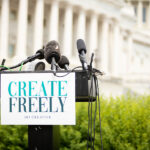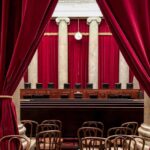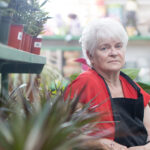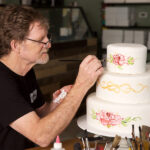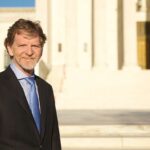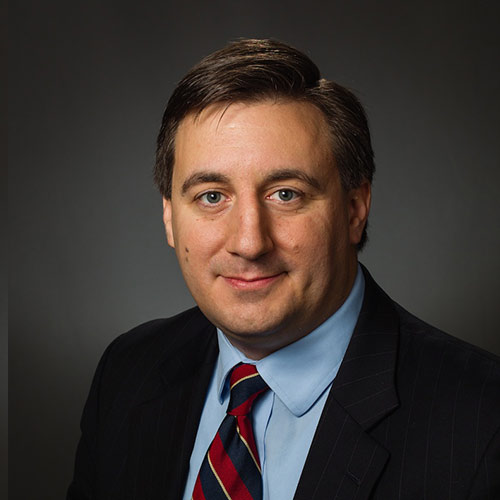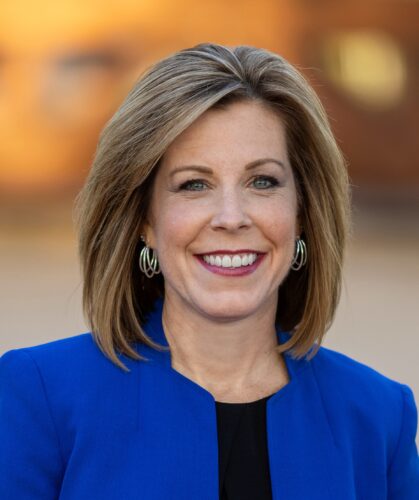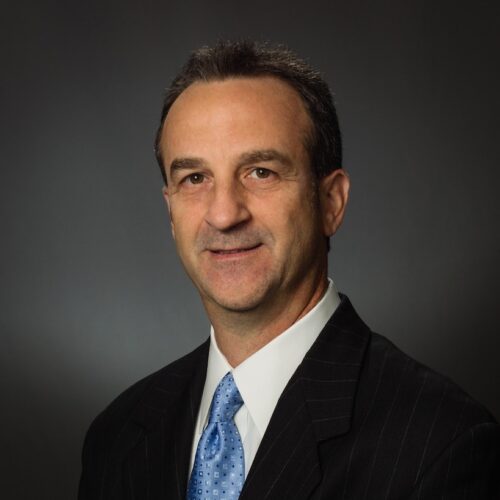WASHINGTON – The U.S. Supreme Court agreed Monday to weigh in on whether the government can force a Lakewood, Colorado, cake artist to use his artistic talents to create a wedding cake celebrating a same-sex ceremony. In July of last year, Alliance Defending Freedom attorneys representing Jack Phillips of Masterpiece Cakeshop asked the high court to take his case and rule that the government cannot coerce him to create artistic expression that communicates a message with which he fundamentally disagrees.
ADF will host a media briefing featuring ADF President, CEO, and General Counsel Michael Farris and ADF Senior Counsel Kristen Waggoner at 11:00 a.m. EDT (8:00 a.m. PDT) Monday. Interested media may participate online or by calling (425) 440-5100 or (561) 515-8658 using guest PIN 356719#.
The Colorado Supreme Court declined to take the case after the state’s Court of Appeals affirmed a Colorado Civil Rights Commission decision from May 2014. That decision ordered Phillips and his employees to design cakes that celebrate same-sex ceremonies and required Phillips to comply with Colorado’s Anti-Discrimination Act by re-educating his staff (which includes members of his own family) and filing quarterly “compliance” reports for two years.
“Every American should be free to choose which art they will create and which art they won’t create without fear of being unjustly punished by the government,” said ADF Senior Counsel David Cortman. “That’s why the bad decision in this case needs to be reversed. It imperils everyone’s freedom by crushing dissent instead of tolerating a diversity of views. We are all at risk when government is able to punish citizens like Jack just because it doesn’t like how he exercises his artistic freedom. America must have room for people who disagree to coexist.”
“Jack’s ability to make a living and run his family business shouldn’t be threatened simply because he exercised his artistic freedom. Artists speak through their art, and when Jack creates custom wedding cakes, he is promoting and celebrating the couple’s wedding,” added ADF Senior Counsel Jeremy Tedesco. “Jack will gladly allow anyone to purchase any product he sells, but he simply can’t put his artistic talents to use on a custom cake for an event so at odds with his faith convictions. The ACLU, which is opposing Jack and other artists in Washington and Arizona, would rather use the strong-arm of government to eradicate from the public square people whose views differ from the government’s. We hope the Supreme Court will affirm how illegitimate that is.”
According to a 2015 Marist poll, 65 percent of Americans oppose penalizing wedding vendors who choose not to provide services for same-sex ceremonies on religious grounds.
In July 2012, Charlie Craig and David Mullins asked Phillips to design a wedding cake to celebrate their same-sex ceremony. In an exchange lasting about 30 seconds, Phillips politely declined, explaining that he would gladly make them any other type of baked item they wanted but that he could not design a cake promoting a same-sex ceremony because of his faith.
Craig and Mullins, now represented by the American Civil Liberties Union, immediately left the shop and later filed a complaint with the Colorado Civil Rights Commission, which eventually ruled against Phillips. The same-sex couple was easily able to obtain their desired rainbow-themed cake for free from another nearby cake artist.
In contrast to the ruling against Phillips, the commission found in 2015 that three other Denver cake artists were not guilty of creed discrimination when they declined a Christian customer’s request for a cake that reflected his religious opposition to same-sex marriage.
As the petition to the Supreme Court in Masterpiece Cakeshop v. Colorado Civil Rights Commission explained, the commission and the Colorado Court of Appeals reached their conclusions “despite the artistry of Phillips’ cakes and the Commission’s exemption of other cake artists who declined to create custom cakes based on their message. This analysis (1) flouts this Court’s controlling precedent, (2) conflicts with Ninth and Eleventh Circuit decisions regarding the free speech protection of art, (3) deepens an existing conflict between the Second, Third, Sixth, and Eleventh Circuits as to the proper test for identifying expressive conduct, and (4) conflicts with free exercise rulings by the Third, Sixth, and Tenth Circuits.”
“It is undisputed that the Colorado Civil Rights Commission…does not apply CADA [Colorado Anti-Discrimination Act] to ban (1) an African-American cake artist from refusing to create a cake promoting white-supremacism for the Aryan Nation, (2) an Islamic cake artist from refusing to create a cake denigrating the Quran for the Westboro Baptist Church, and (3) three secular cake artists from refusing to create cakes opposing same-sex marriage for a Christian patron,” the petition stated. “Neither should CADA ban Jack Phillips’ polite declining to create a cake celebrating same-sex marriage on religious grounds when he is happy to create other items for gay and lesbian clients.”
“This is not about the people who asked for a cake, it’s about the message a custom-made cake communicates,” added ADF-allied attorney Nicolle Martin of Lakewood, who is serving as co-counsel in the case. “If these were off-the-shelf cakes, there would be no problem. These are custom-designed artistic projects that express a vision, as celebrity chefs Duff Goldman and Buddy Velastro have rightly explained about their own works. Artistic expression has always enjoyed broad protection under the Constitution.”
- Pronunciation guide: Tedesco (Tuh-DESS’-koh)
Alliance Defending Freedom is an alliance-building, non-profit legal organization that advocates for the right of people to freely live out their faith.
# # # | Ref. 38426



